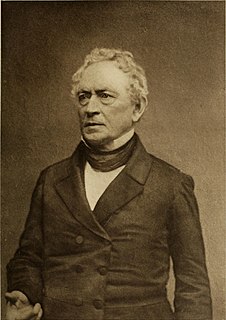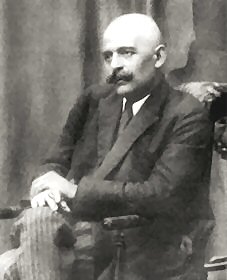A Quote by Robert South
Related Quotes
[F]or avoiding the extremes of despotism or anarchy . . . the only ground of hope must be on the morals of the people. I believe that religion is the only solid base of morals and that morals are the only possible support of free governments. [T]herefore education should teach the precepts of religion and the duties of man towards God.
A great character, founded on the living rock of principle is, in fact, not a solitary phenomenon, to be at once perceived, limited, and described. It is a dispensation of Providence, designed to have not merely an immediate, but a continuous, progressive, and never-ending agency. It survives the man who possessed it; survives his age,--and perhaps, his country, his language.
As to Jesus of Nazareth, my opinion of whom you particularly desire, I think the system of Morals and his Religion, as he left them to us, the best the World ever saw or is likely to see; but I apprehend it has received various corrupting Changes; and I have, with most of the present Dissenters in England, some doubts as to his divinity.
I do not think I could myself, be brought to support a man for office, whom I knew to be an open enemy of, and scoffer at, religion. Leaving the higher matter of eternal consequences, between him and his Maker, I still do not think any man has the right thus to insult the feelings, and injure the morals, of the community in which he may live.
Many a man renounces morals, but with great difficulty the conception, 'morality.' Morality is the 'idea' of morals, their intellectual power, their power over the conscience; on the other hand, morals are too material to rule the mind, and do not fetter an 'intellectual' man, a so-called independent, a 'freethinker.'
Religion is the only solid basis of good morals; therefore education should teach the precepts of religion, and the duties of man toward God. These duties are, internally, love and adoration: externally, devotion and obedience; therefore provision should be made for maintaining divine worship as well as education. But each one has a right to entire liberty as to religious opinions, for religion is the relation between God and man; therefore it is not within the reach of human authority.
The Christian religion, outwardly and even in intention humble, does, without meaning it, teach man to regard himself as the most important of all created things. Man surveys the starry heavens and hears with his ears of the plurality of worlds; yet his religion bids him believe that his alone out of these innumerable spheres is the object of his master's love and sacrifice.




































